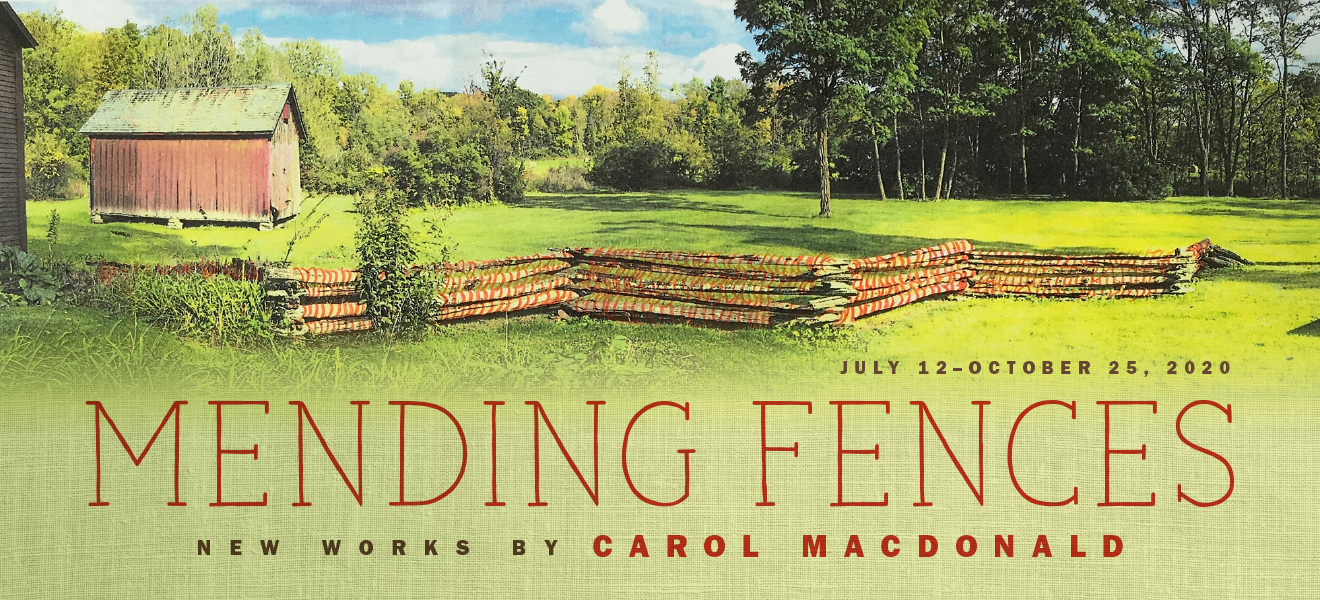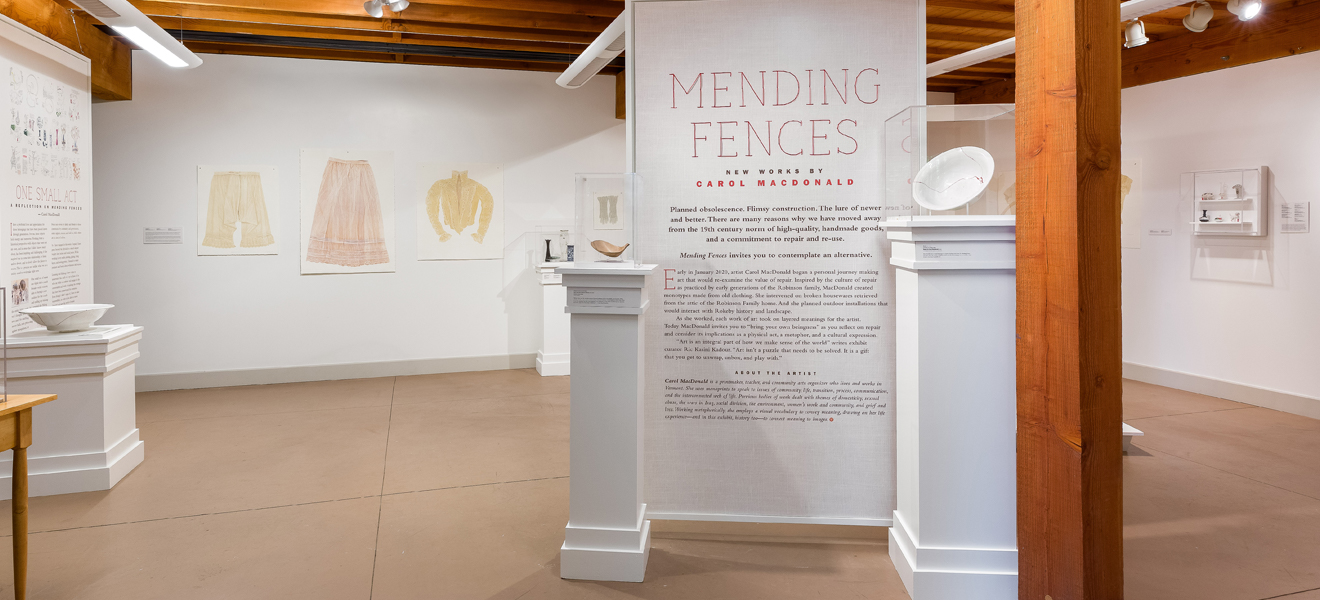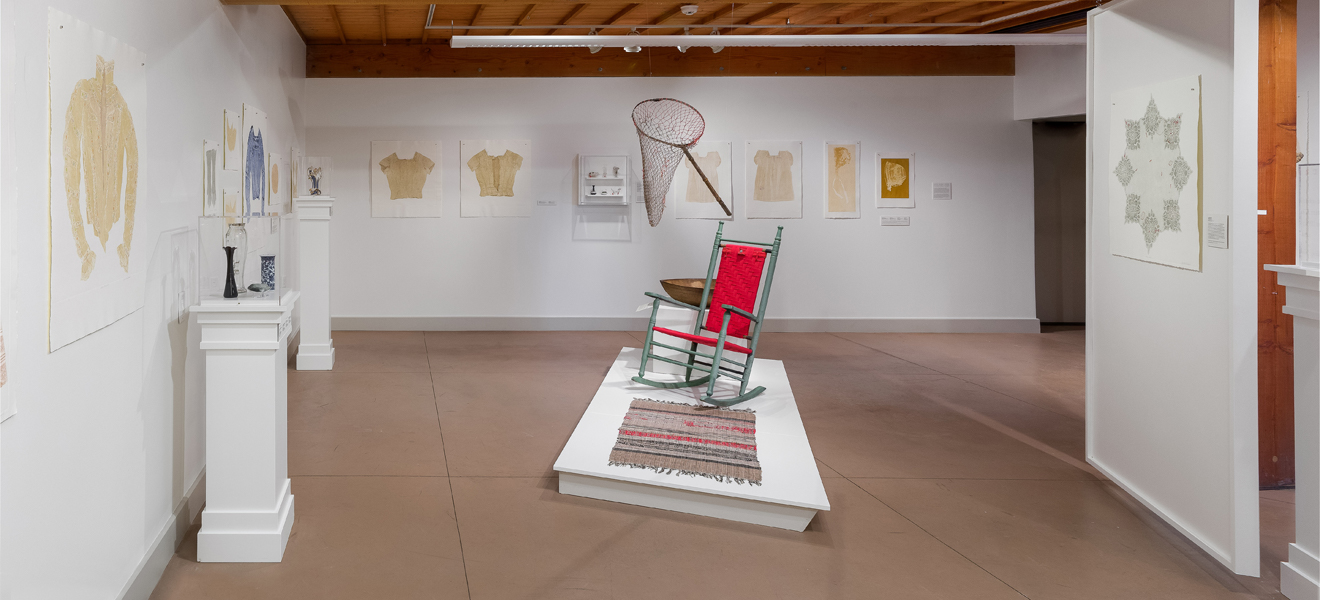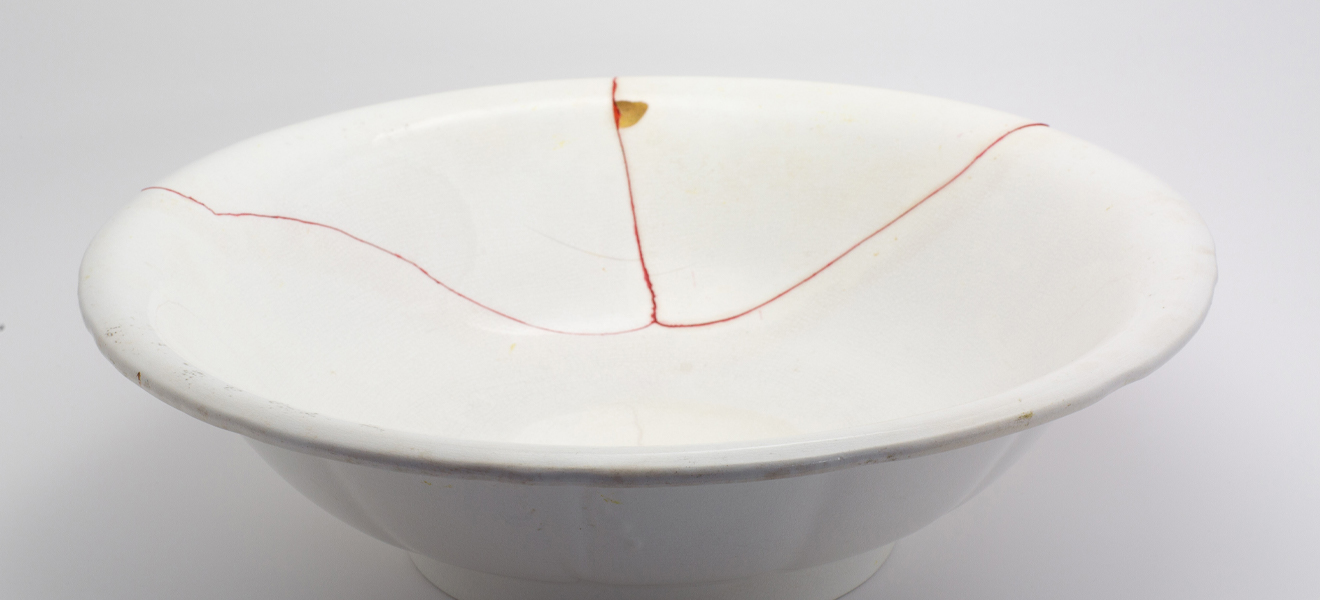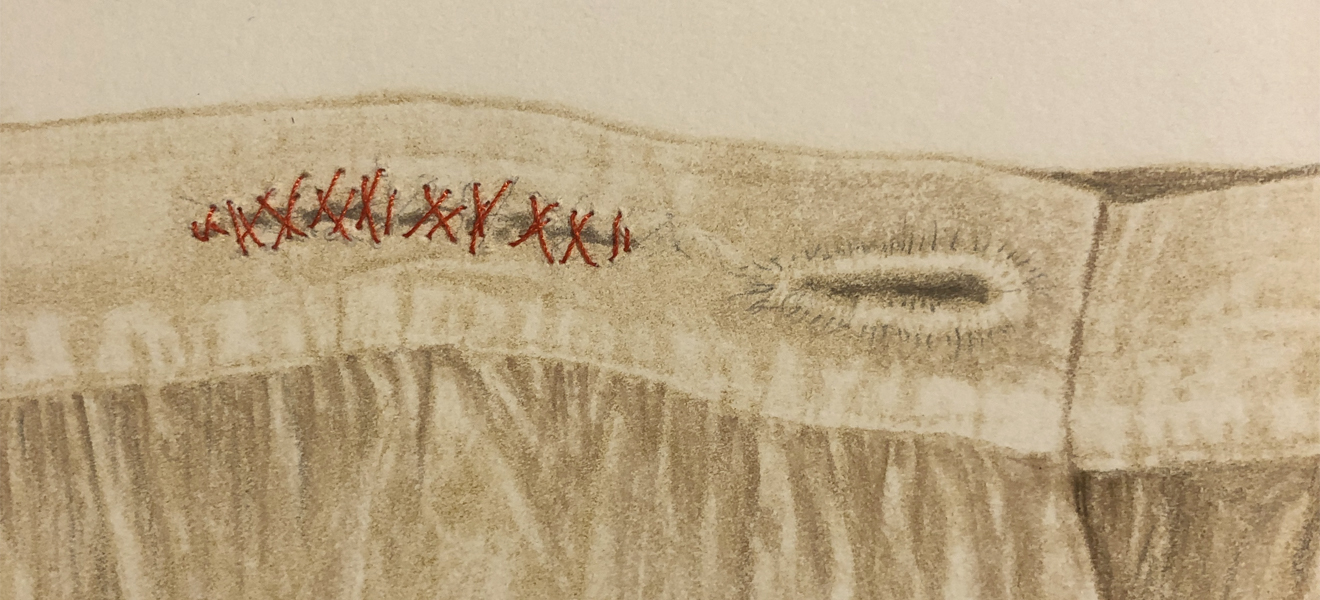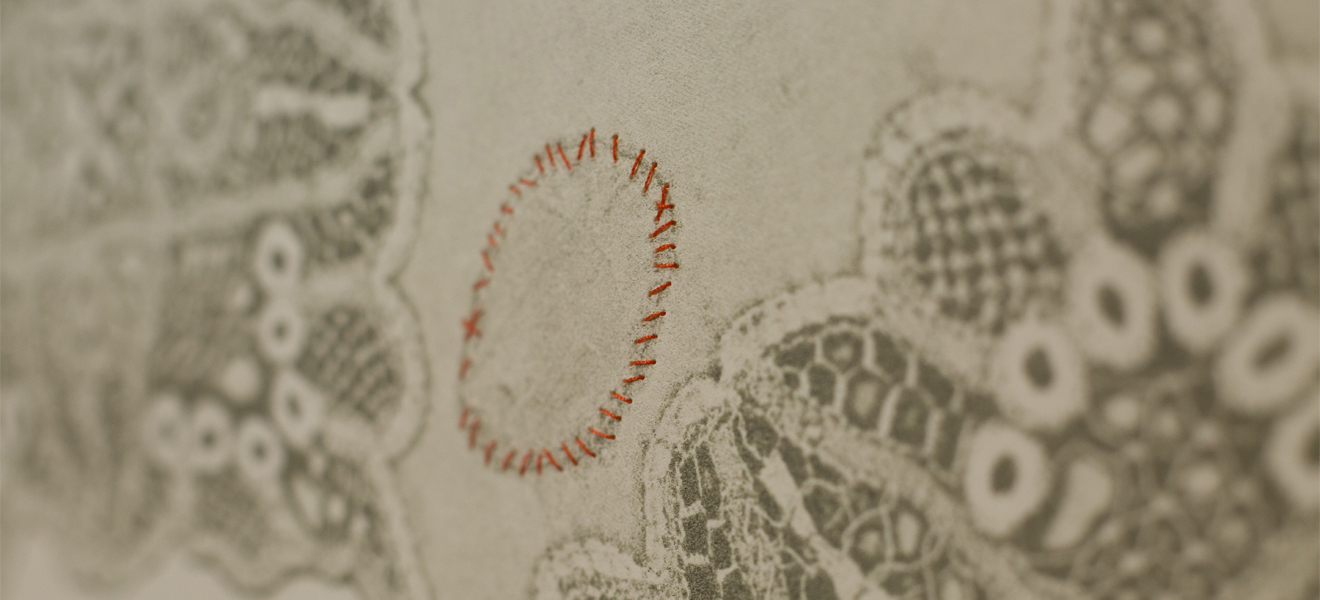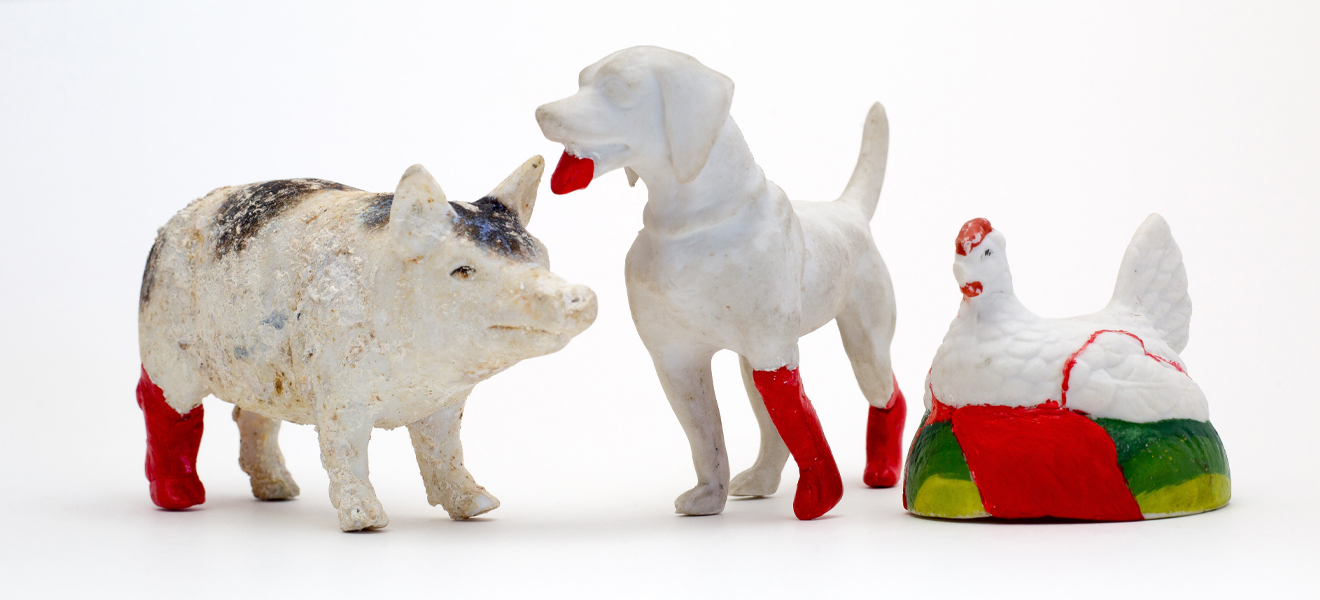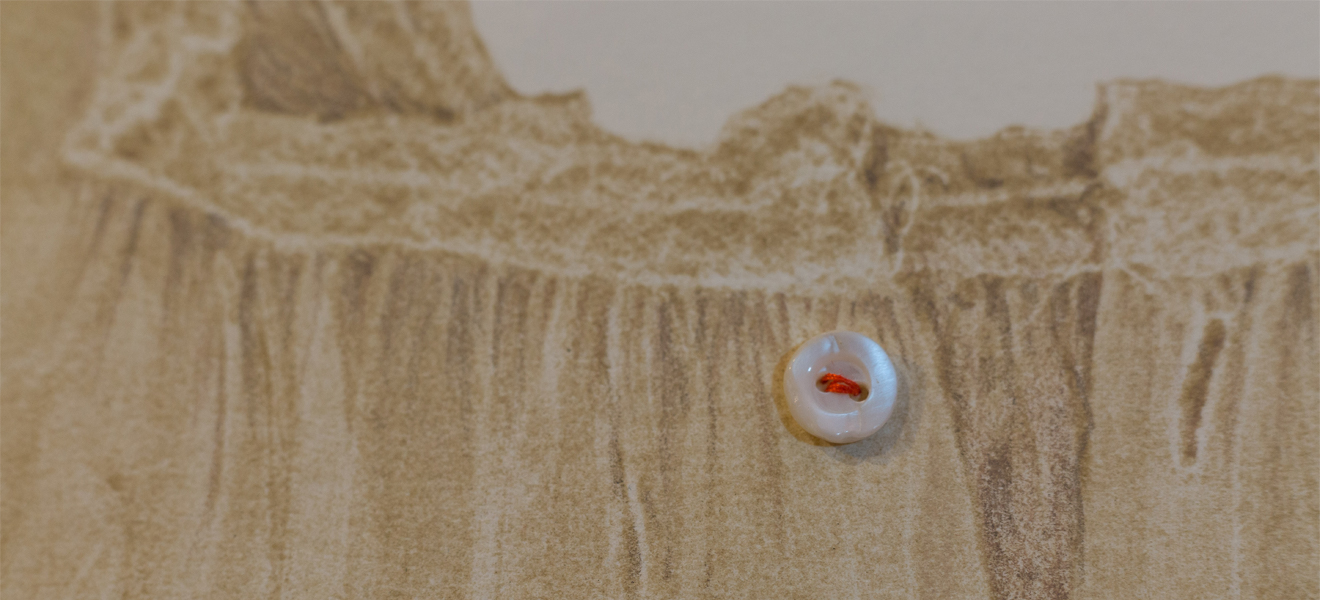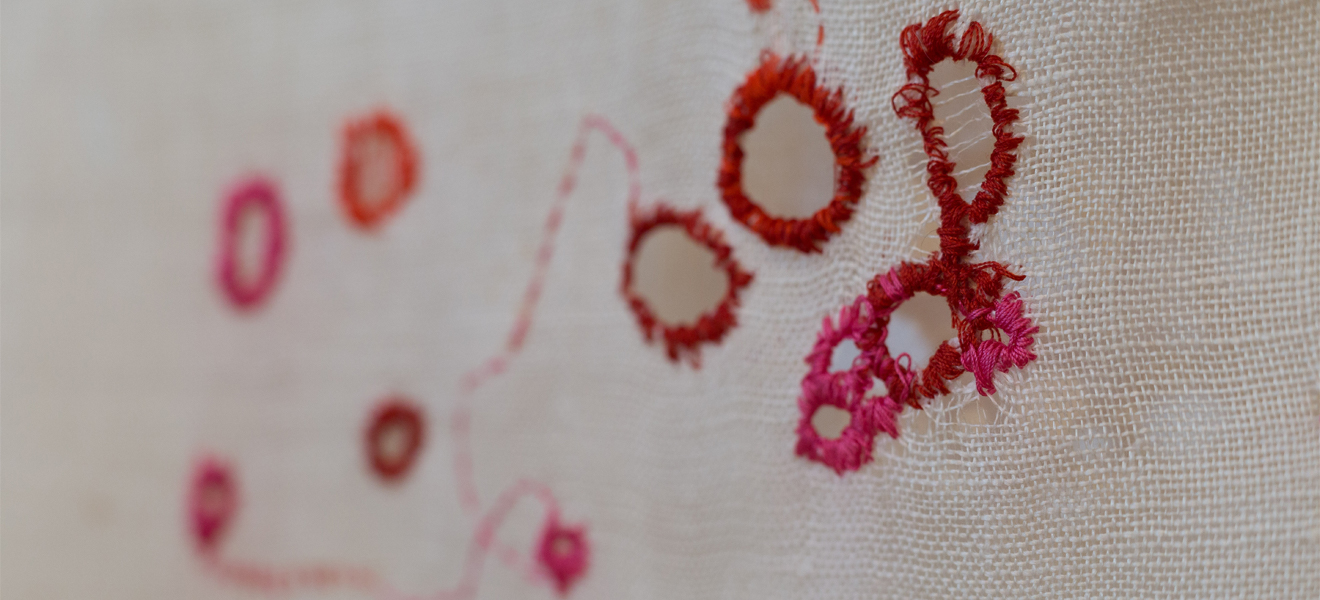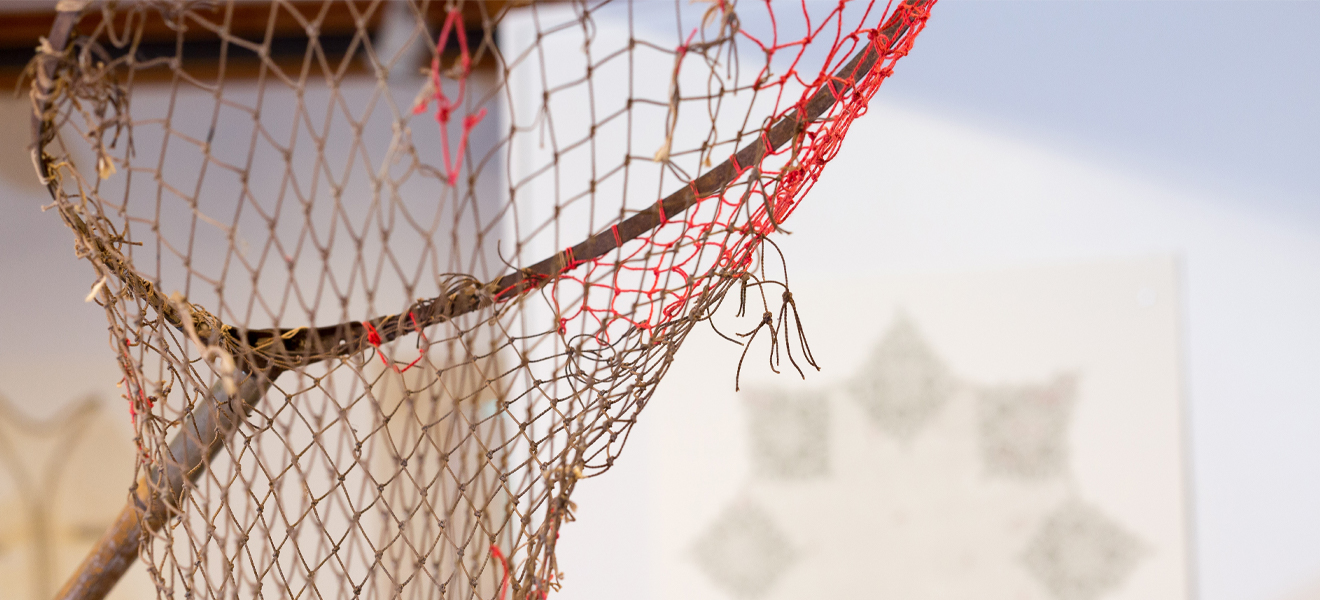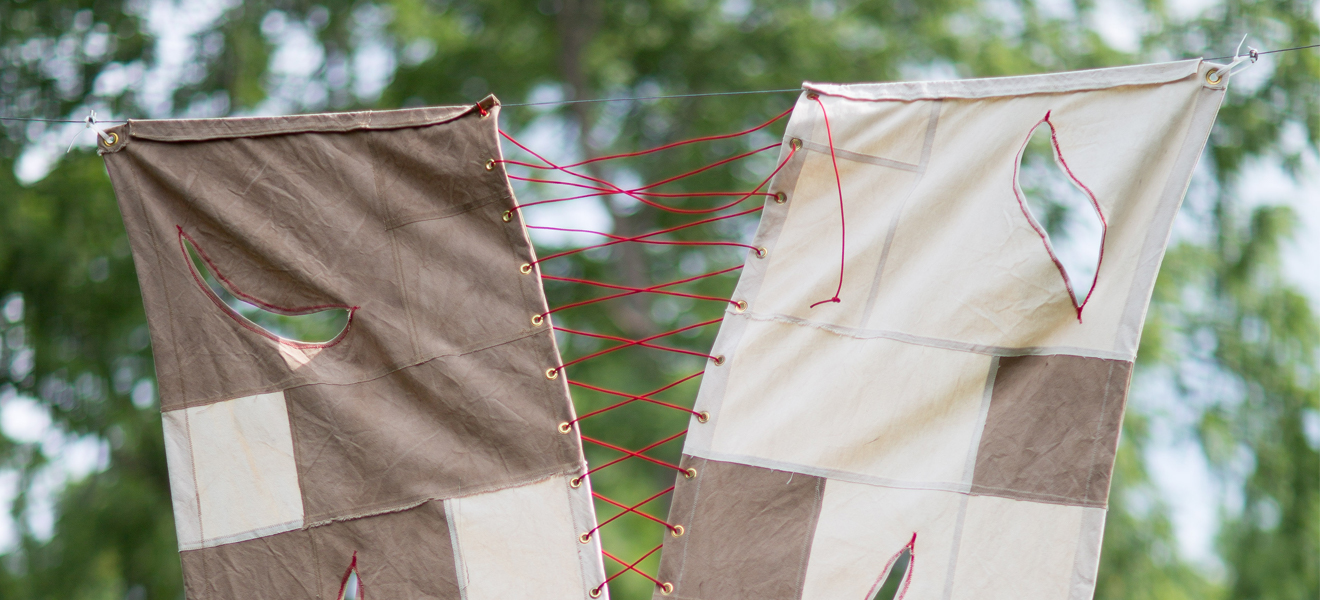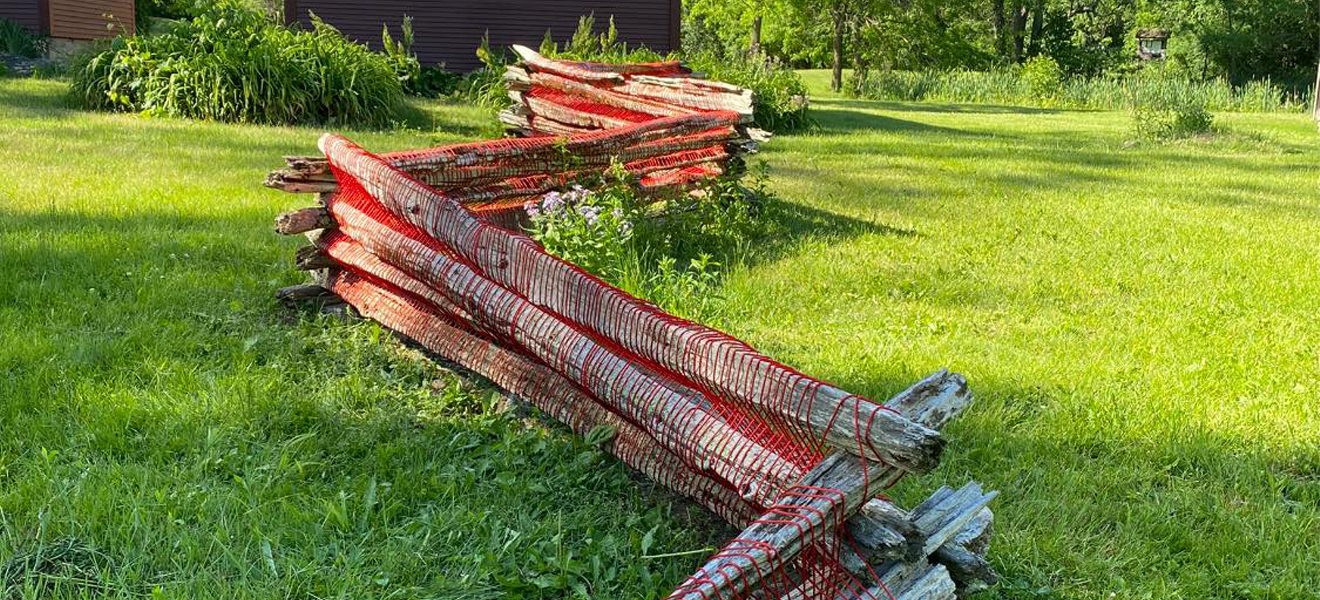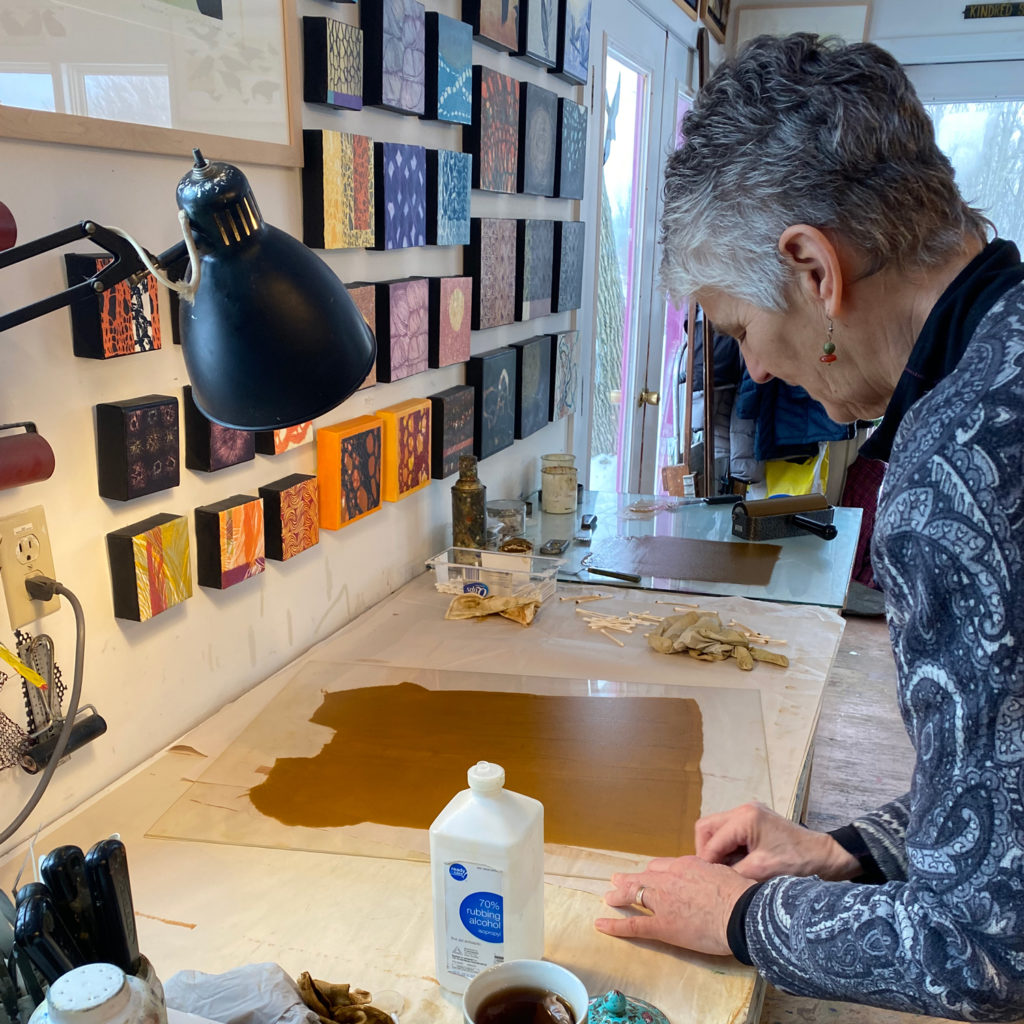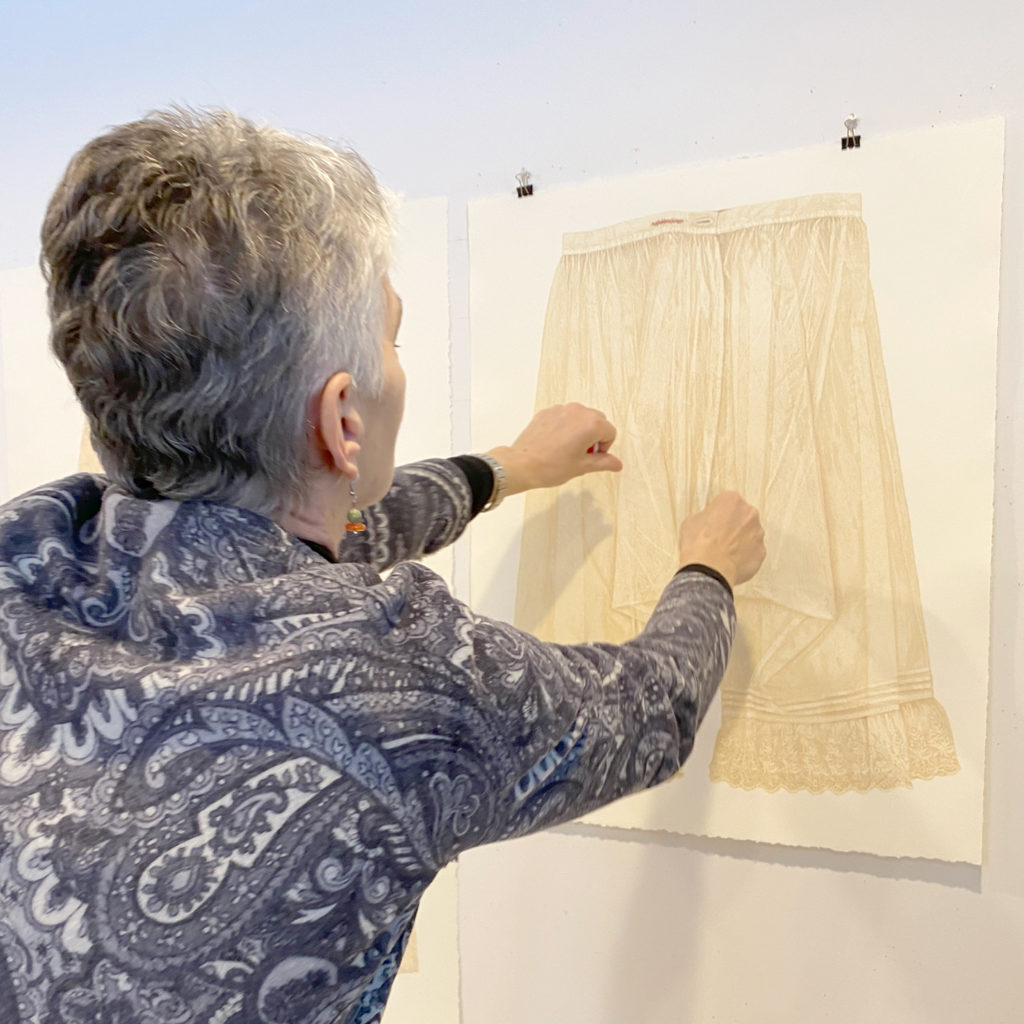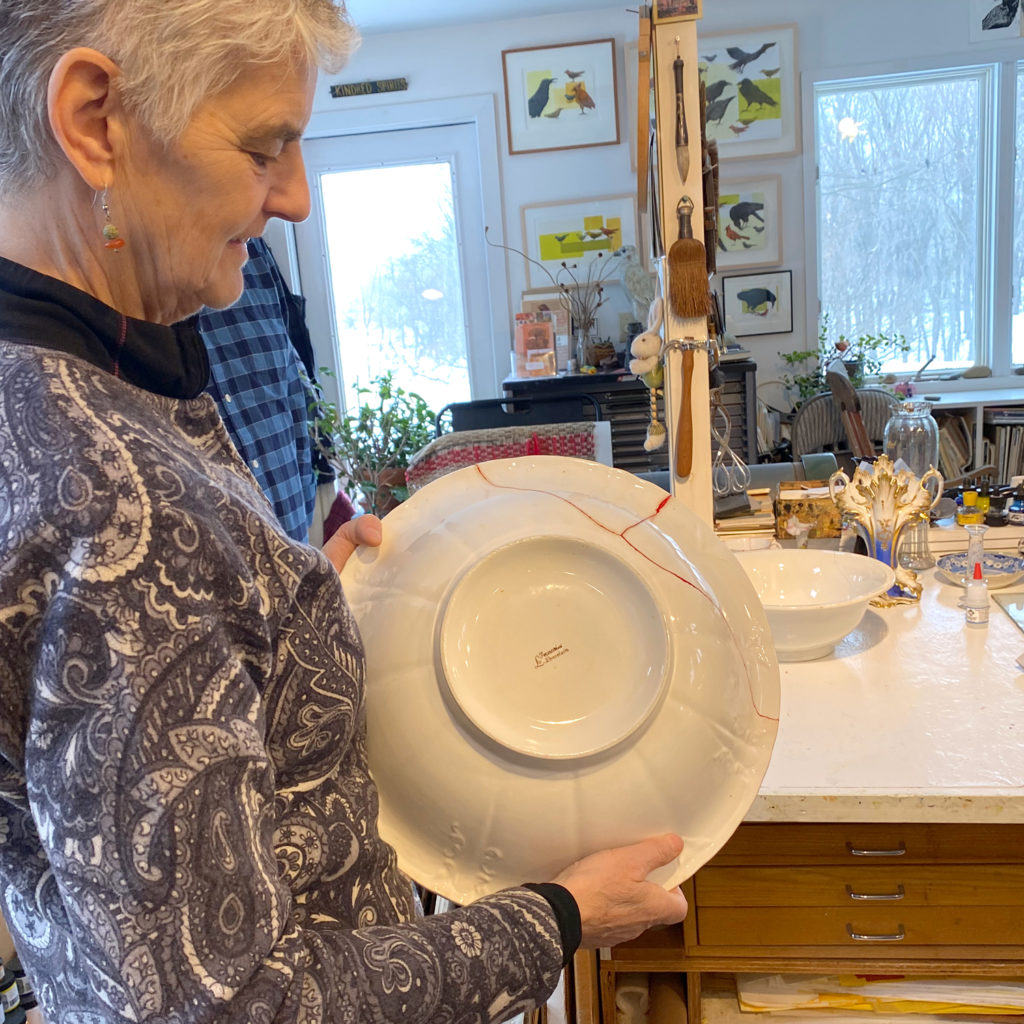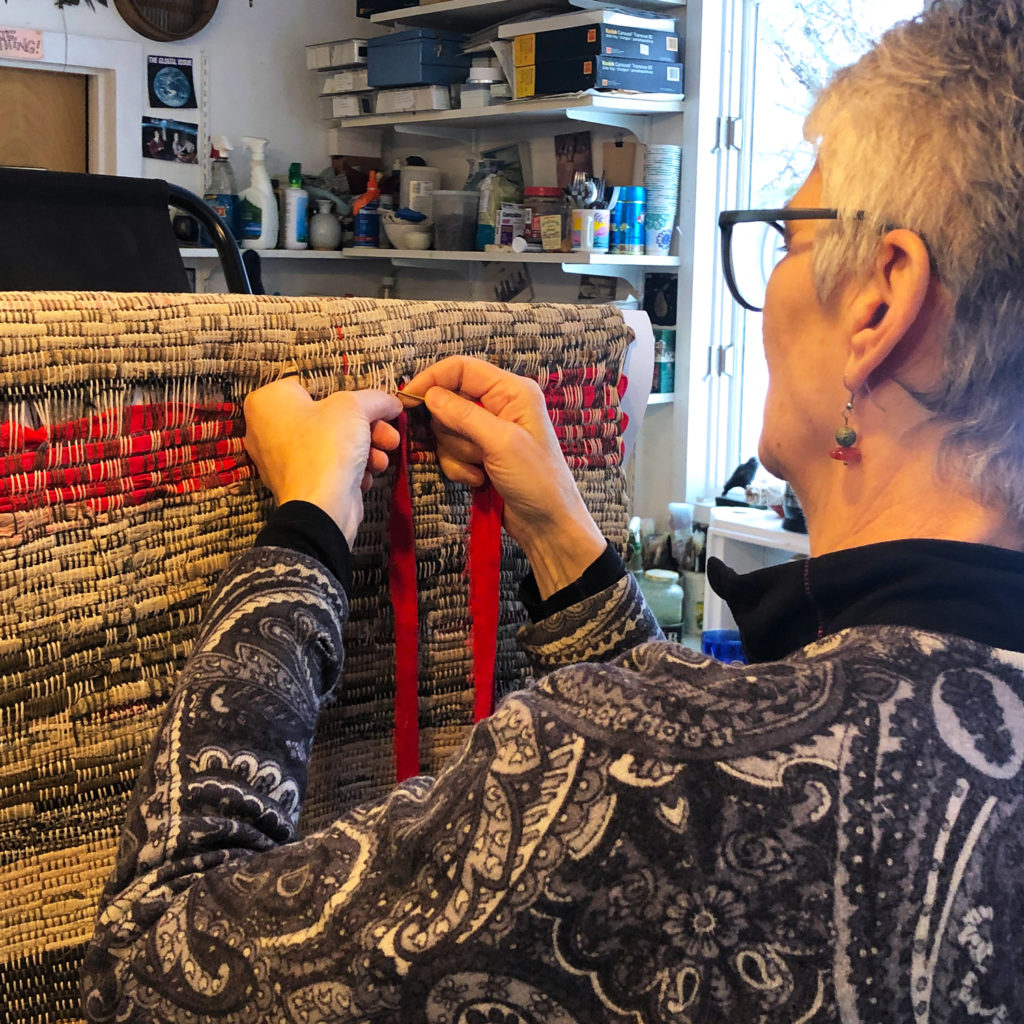Mending Fences: New Works by Carol MacDonald
“If ever the country needed mending — of its political rifts, racial divisions and coronavirus woes — now is the time. Carol MacDonald’s new work, on exhibit at the Rokeby Museum, plumbs that need with uncanny timing.” — Seven Days
Exhibit — Mending Fences: New Works by Carol MacDonald
(2020 seasonal exhibit: July 12–October 25)
Mending Fences: New Works by Carol MacDonald is a multifaceted exhibition of objects, monotype prints, and site-specific installations that — in the face of complex cultural challenges — promotes both simple and profound acts of repair. The exhibition, curated by Ric Kasini Kadour, includes environmental and gallery installations of works inspired by Rokeby Museum artifacts and archives.
Mending Fences was selected from among eight artist exhibit proposals generated by Contemporary Art at Rokeby Museum. In 2019, artists from Montreal, Los Angeles, New York and the northeast attended a four-day residential program — led by Ric Kasini Kadour and a faculty of scholar/artists — in a series of workshops and discussions designed to foster the integration of history and contemporary art into an artist’s practice.
Carol MacDonald is a printmaker, teacher, and community arts organizer living and working in Vermont. One body of her monoprint work utilizes knitting imagery to evoke a visual vocabulary investigating “the threads of our shared humanity” and addressing issues of community, life, transition, process, communication and the interconnected web of life.
Recently MacDonald has taken interest in contemporary repair culture, including educational workshops and community events organized by groups such as Oakland, California’s Culture of Repair Project, which teaches lost skills like darning. She writes, “Society today is struggling with an economy of planned obsolescence where it is easier to replace something than to repair it. We are losing our ability to fix things and I believe that the act of repairing is a way to reclaim a piece of our personal and collective history.”
MacDonald sees a direct connection between this work and the history of Rokeby, citing an 1839 letter from Rachel G. Robinson to Rowland, when away in Philadelphia. Rachel writes “say to my precious sister that if R. Evans needs another suit of summer clothes before I reach home, they might be made out of the Pongee in the drawer of the chest in the bedroom and Ann’s little silk shawl is in my box in the upper part of the bedroom closet.”
Further extending the analogy, MacDonald comments that “fixing or repairing is inherent to abolitionism, farming and homesteading as well as addressing contemporary issues of repair in today’s society. The [Rokeby] farm and homestead relied heavily on not only the making of tools, fences, clothing and household goods, but also the ability to repair them when they were broken, torn or worn out. Since Rokeby has been preserved and not restored, this is a perfect place to stage this installation as there are things currently on exhibit that are in need of repair.”
Over this past winter, MacDonald created a series of artworks that incorporate the act of repair in reference the Japanese art of Kintsugi, which uses gold dust mixed into lacquer to repair broken pottery. In the spirit of that practice, MacDonald has employed red thread, cord, rope, and reversible glue and paint to repair selected objects from Rokeby Museum. Using damaged garments and laces, she has created a series of monoprints to which she added fabric and stitching with red thread.
“My intention is to bring attention to the value of repairing as opposed to throwing away and replacing.” MacDonald’s contemporary work connects to the practice of repair at Rokeby and Quaker’s spiritual drive towards restorative justice. “I believe that the act of abolition was essentially a way to repair the societal wrong of slavery,” she writes.
“As I’ve worked this winter to repair broken objects and make portraits of clothing and textiles, the process has awakened in me, a white woman, the need to work on my own internalized racism and oppression and engage in the societal conversation that is going on today regarding racial bias and white supremacy.”
Selected artifacts from the Rokeby collections — including household goods, clothing, and family letters referencing the efforts to effect local and national change — are exhibited in conjunction with MacDonald’s art.
The Monotype Guild of New England hosted a virtual tour of Mending Fences and an artist talk with Carol MacDonald in early September. In the video below of that event, you can hear more about Carol’s process and get a glimpse into her studio.
Exhibit Opening — Mending Fences: New Works by Carol MacDonald
Sunday, July 12 from 2–5:00 pm
Join Vermont artist Carol MacDonald in informal conversation to celebrate the opening of her new exhibit. Inspired by the culture of repair she found at Rokeby while attending the 2019 Contemporary Art at Rokeby artist lab, Carol has created a series one-of-a-kind monoprints, and intervened on a collection of broken household items, many of which were stored away in the attic of the Robinson family home.
Exhibit curator Ric Kasini Kadour has written a companion book to the exhibit, and this will be available for purchase.
Please note: face masks and physical distancing is currently required at Rokeby Museum. For this reason, the afternoon opening is planned as a drop-in event. Access to the gallery will be managed; please know that there may be a short wait to enter.
Recorded Live, July 12, 2020
About Carol MacDonald
Carol MacDonald is an artist, teacher and community arts organizer. Her capacity for delving into a subject is well documented in her work with birds and crows, knitting and healing. In 2011, she partnered with Eric Rehman to create the installation Transcendence: Mooring the Storm. This project addressed issues of sexual violence. In collaboration with HopeWorks, they interviewed survivors of sexual violence and made 2-D and 3-D imagery related to their experiences. Then, over the course of a month, the work was installed in the window of the Frog Hollow Gallery in downtown Burlington. These intimate pieces evolved in this most public setting, inviting viewers to come back and see the progression. They then traveled the show to three other sites in Vermont, changing it each time to fit into the changing spaces. MacDonald has been exhibiting her work in Vermont and nationally since 1980. She was a founder of the Art’s Alive Festival of Fine Art in Burlington, served on the board of directors of the local and national Women’s Caucus for Art and the Frog Hollow Craft Association. She was awarded the 2008 Barbara Smail Award by Burlington City Arts and the 1999 Susan B. Anthony Award for leadership in the Arts by the YWCA. She has been an artist fellow at the Virginia Center for Creative Arts and the Vermont Studio Center. Her work is in many private and corporate collections around the world.
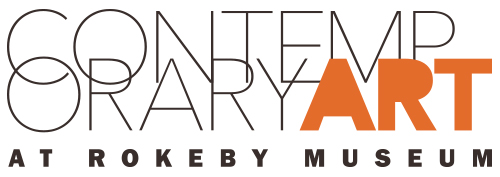
About Contemporary Art at Rokeby Museum
Contemporary Art at Rokeby Museum is an ambitious project designed to engage artists and the public with Rokeby Museum archives, objects, buildings, and land. Now in its second year, project activities will continue to demonstrate how contemporary art can pick up the unfinished work of history and foster civic engagement in social, economic, and environmental justice issues. In 2019, Contemporary Art at Rokeby Museum presented two exhibitions: “Rokeby Through the Lens” and “Structures;” introduced an artist membership program, conducted a symposium about the relationship between art and history, and hosted an artist lab designed to support the development of an artist’s practice. Contemporary Art at Rokeby Museum is a collaboration with Ric Kasini Kadour and Kasini House.
 Rokeby Museum
Rokeby Museum